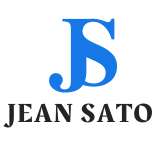New terminology and ideas often appear in the fast-changing field of contemporary technology and society, grabbing the attention of the public and influencing our perception of the world. Among such terms that have lately attracted notice is “gidler.” Though the details may change according on the situation, gidler usually refers to a special nexus of social dynamics, technology, and lifestyle. Explored in this article are the genesis, interpretations, and possible effects of the term “gidler” on modern culture.
the Gidler Origins
It looks like the term “gidler” came from the meeting point of social trends and digital innovation. Thought to be a portmanteau of “gig” and “idler,” it reflects a combination of the dynamics of the gig economy with a relaxed, adaptable way of living. Short-term contracts and freelancing work that define the gig economy have changed traditional employment arrangements and given rise to a workforce that prizes flexibility and independence.
Interpreting Gidler
Fundamentally, gidler is a representation of people who negotiate the gig economy, focusing especially on striking a balance between work and play. Many times, these people use digital channels to locate employment that enables them to continue leading a life that values their independence and travel.
Key Features of Gidlers Flexibility: Gidlers appreciate having options when it comes to their work schedules and places.
Digitally Savvy: Gidlers are typified by their proficiency with digital platforms and tools. They engage with clients or consumers, organise their business, and discover gigs using technology.
job-Life Balance: Gidlers, in contrast to other professionals, are more focused on striking a balance between job and personal life, frequently putting experiences and personal fulfilment ahead of money gain.
Generally speaking, gidlers have a broad skill set that allows them to take on a variety of jobs, from technical chores to artistic endeavours.
The Social Effect of Gidler
Gidlers are becoming more and more popular, which has big effects on the social systems and economics. As more people choose this way of living, a few patterns and difficulties surface.
Implications for Economics
The gig economy has already upended conventional employment arrangements, and the emergence of gidlers is quickening this process. Policies and employers alike need to adjust to a workforce that appreciates flexibility and independence more and more.
Income Variability:
Although gidlers have more control over their schedules, their incomes are sometimes unpredictable. The instability of the finances might make stability and long-term planning difficult.
Impact in Society and Culture
Modifying Conventions at Work The life of a gidler questions accepted ideas about success and effort. Gidlers are reinventing what success in a job means by putting experiences and personal fulfilment first.
Building Communities:
Online groups where gidlers can exchange resources, guidance, and support are made possible by digital platforms that enable gig labour. The gidler lifestyle is vitally dependent on these communities.
Issues and Things to Remember
Although the life of a gidler has many advantages, it also has a number of issues that need to be resolved to guarantee its sustainability.
Benefits Access:
Gidlers frequently do not have access to benefits like paid time off, retirement plans, or health insurance, as do regular workers. The health of gig workers depends on closing this divide.
Gidlers may experience employment insecurity due to the inherent instability of the gig economy. It is imperative that plans be developed to give gig workers more stability and assistance.
Governments and regulatory agencies need to think about how to guarantee fair treatment and safeguard the rights of gig workers in this changing labour market.
Verdict
Gidler embodies an intriguing advancement at the nexus of work, life, and technology. The gidler lifestyle provides a window into the future of work, when personal fulfilment, flexibility, and autonomy take front stage, as the gig economy expands. Through a knowledge of the traits, effects, and difficulties of gidler, we can better negotiate the changing terrain of contemporary work and make sure that everyone in society gains from this novel paradigm.











